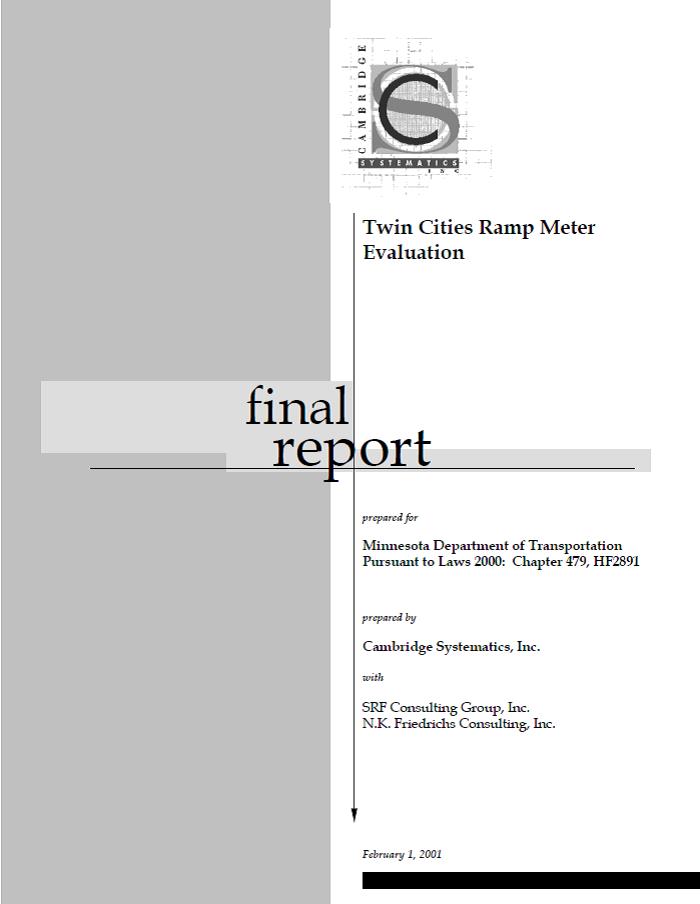Overview
 The purpose of this study was to determine the effects that ramp metering had within the Twin Cities metro area. 430 ramp meters were to be shut down for six weeks, so data was collected for five weeks before they were turned off. Objectives of this study included examining how ramp metering affected freeways, local roads, and transit operations; gathering the public perception of ramp metering; and comparing Minnesota's ramp metering system with other systems across the country.
The purpose of this study was to determine the effects that ramp metering had within the Twin Cities metro area. 430 ramp meters were to be shut down for six weeks, so data was collected for five weeks before they were turned off. Objectives of this study included examining how ramp metering affected freeways, local roads, and transit operations; gathering the public perception of ramp metering; and comparing Minnesota's ramp metering system with other systems across the country.
The results showed a decrease in freeway volume and freeway speeds, and an increase in freeway travel times and crashes. When the public attitude was examined, it was determined that most people thought traffic was worse, and more people supported the ramp meters. As a result, MnDOT launched a new ramp meter timing system in order to meet the consumer's wants -- reduce delays, crashes, and congestion; provide travelers with more reliable travel times; and manage ramp meter wait times. The new system is also adaptable to congestion and other factors.